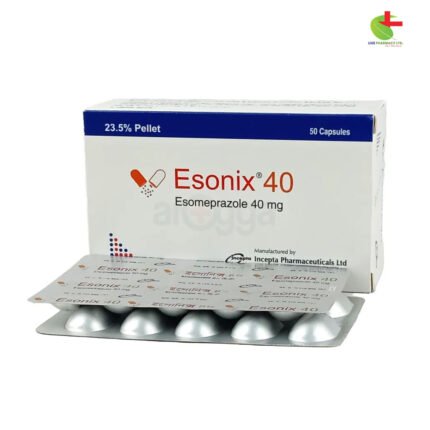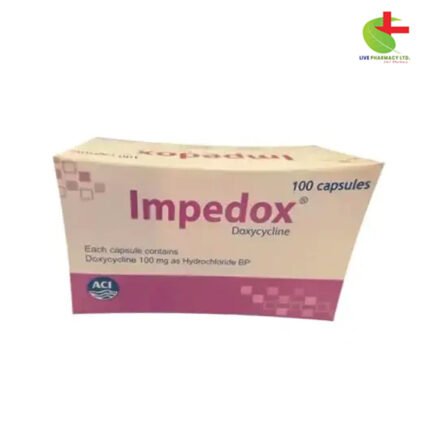Edopain 300
80.00৳ Strip
- Edopain is a nonsteroidal anti-inflammatory drug (NSAID) that alleviates pain and inflammation.
- Effective for osteoarthritis, rheumatoid arthritis, and acute gout.
- Works by selectively inhibiting the COX-2 enzyme to reduce prostaglandin synthesis.
- Available in capsule and extended-release tablet forms.
- Always consult your healthcare provider for proper dosing and guidance.
 Brand
Brand
|
Incepta Pharmaceuticals Ltd |
|---|---|
 Generics
Generics
|
Etodolac |
 Type
Type
|
Capsule |
Indications
Edopain is recommended for:
- Managing both acute and chronic symptoms of osteoarthritis and rheumatoid arthritis
- Alleviating acute pain
- Treating acute gout
Description
Edopain is a nonsteroidal anti-inflammatory drug (NSAID) known for its anti-inflammatory, analgesic, and antipyretic properties. Its effectiveness stems from inhibiting prostaglandin synthesis, a common mechanism among NSAIDs.
Pharmacology
Edopain’s anti-inflammatory effects arise from its inhibition of the cyclooxygenase (COX) enzyme, which decreases the production of peripheral prostaglandins that mediate inflammation. Unlike traditional NSAIDs, Edopain is 5-50 times more selective for COX-2 than COX-1. It may also lower fever by acting on the hypothalamus, promoting peripheral dilation and enhancing heat loss.
Dosage & Administration
Adults (18 years and older):
- Etodolac 300 mg capsules: 600 mg daily, divided into 1-2 doses
- Etodolac 600 mg extended-release tablets: Once daily
Pediatric Use: Safety and effectiveness in patients under 18 years have not been established.
Always follow your healthcare provider’s advice.
Interactions
NSAIDs, including Edopain, may reduce the effectiveness of ACE inhibitors. Caution is advised when using Edopain with Aspirin, as it can alter protein binding without affecting clearance. Concomitant use is generally not recommended due to the potential for increased adverse effects.
Contraindications
Edopain is contraindicated in individuals with known hypersensitivity to the drug. It should not be used by patients who have experienced asthma, urticaria, or other allergic reactions following Aspirin or NSAID use.
Side Effects
Common side effects of Edopain include gastrointestinal issues such as abdominal pain, constipation, diarrhea, dyspepsia, flatulence, heartburn, nausea, gastric ulcers, and vomiting. Other potential effects include dizziness, edema, elevated liver enzymes, headaches, increased bleeding time, pruritus, rashes, and tinnitus.
Pregnancy & Lactation
There are no well-controlled studies of Edopain in pregnant women. It should only be used during pregnancy if the benefits outweigh the risks. The excretion of Edopain in human milk is unknown, so a decision should be made to either discontinue nursing or the drug based on its importance to the mother.
Precautions & Warnings
Caution is advised for patients with severe hepatic conditions, pre-existing asthma, fluid retention, hypertension, or heart failure. Discontinue Edopain if signs of liver disease or systemic reactions (e.g., eosinophilia, rash) occur.
Overdose Effects
Acute overdose of Edopain may result in symptoms such as lethargy, drowsiness, nausea, vomiting, and epigastric pain, which are typically reversible with supportive care.
Therapeutic Class
- Drugs for Osteoarthritis
- Drugs for Rheumatoid Arthritis
- Non-steroidal Anti-inflammatory Drugs (NSAIDs)
Storage Conditions
Store below 30°C, away from light, and keep out of reach of children.













Reviews
There are no reviews yet.